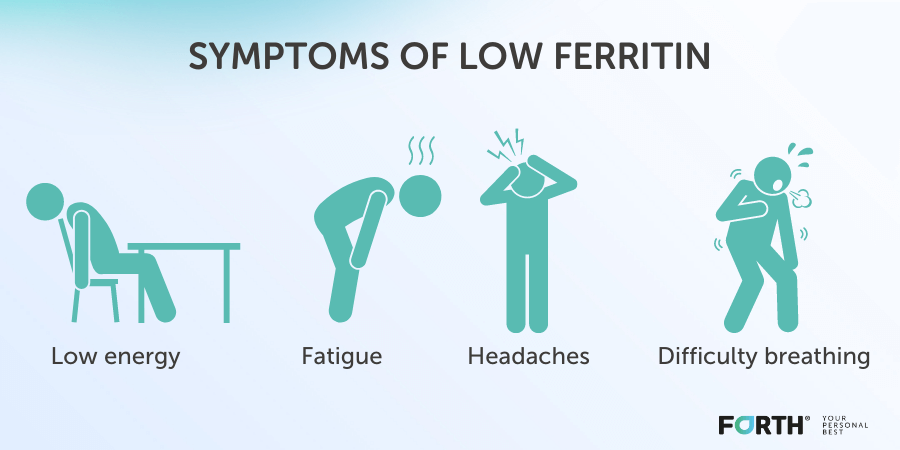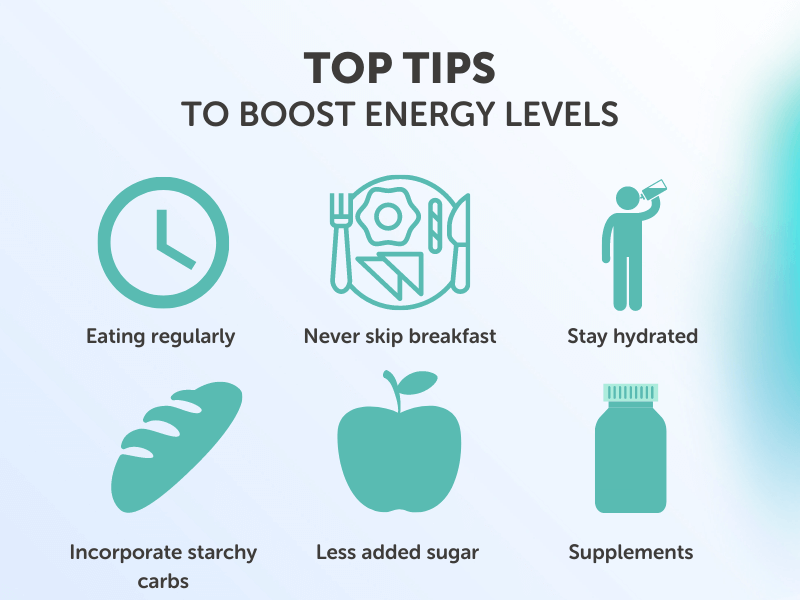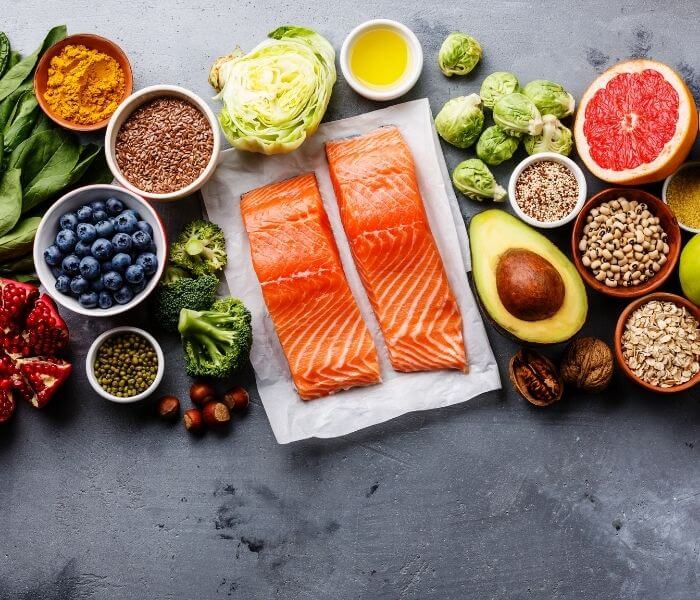
- What Are Nutrients?
- What Food Give You Energy?
- Why Are These Nutrients Important?
- Iron
- Ferritin
- Folate
- Magnesium
- Vitamin D
Feeling tired all the time? It may be worth looking at your diet to see what food to include to help improve energy levels. We take a look at the key nutrients you’ll need to focus on for the year ahead to help you thrive.
When it comes to boosting your energy levels, the best way to stay on top of your game is to eat a healthy, balanced diet. Your body is a bit like a car, without the right fuel, it’s not going to get very far. So, if you’re regularly questioning why you feel tired most of the time or find yourself lagging in the afternoon, it’s a good idea to analyse your diet to see if you’re lacking certain essential nutrients.
What Are Nutrients?
All food provide energy, in the form of calories. Carbohydrates are the body’s preferred source of energy, but fats and proteins also give you some get-up-and-go. These are classified as macronutrients because these are what the body needs in higher quantities for energy.
As vital as macronutrients are, micronutrients are also equally important. These are mostly vitamins and minerals that the body needs, but in smaller quantities.
What Food Give You Energy?
Below is the nutrients that are essential to giving your body energy, along with a list of food you can incorporate into your diet to obtain them. Remember, essential means you must get them from your diet because your body is unable to make these nutrients itself:
Vitamin B12
- liver
- beef
- clams
- trout
- salmon
- cheese
- milk
- yoghurt
- supplements if you do not eat meat or animal-based foods
Iron and ferritin
- red meat (beef, lamb, pork)
- poultry
- fish
- dark green leafy veg
- nuts, seeds, and pulses

Folate
- spinach
- kale
- cabbage
- broccoli
- liver
- shellfish
- wholegrains
- fortified foods such as bread and cereals [5]
Magnesium
- wholegrains
- dark, green leafy vegetables
- peanuts
- almonds
- cashews
- dried beans
- fortified breakfast cereals
Vitamin D
- sunlight exposure
- oily fish
- egg yolks
- fortified foods such as milk, bread, and cereals
Why Are These Nutrients Important?
Micronutrients are critical for human health, and deficiency in any of them may negatively affect your health and wellbeing, and in the worst circumstances can be life-threatening. Below is the important roles each of these micronutrients play:
Vitamin B12
Vitamin B12 is naturally present in animal-based foods and is needed to make red blood cells and DNA. The main job of red blood cells is to transport oxygen around the body. B12 deficiency can cause anaemia and symptoms such as fatigue, weakness, confusion, and depression.
Iron
Iron is also essential for the production of healthy red blood cells. If you have an iron deficiency, then there won’t be enough of this essential mineral to make haemoglobin, the protein responsible for binding to and transporting oxygen around the body. Iron deficiency anaemia is the most common of the anaemias and can cause symptoms such as fatigue, weakness, headaches, and dizziness.
Ferritin
Ferritin is the main storage protein for iron and is vital for keeping iron levels in the body balanced. A low ferritin level can indicate iron deficiency anaemia causing symptoms, such as fatigue, headaches, low energy, and breathing issues.

Folate
Folate is also known as vitamin B9. It is essential for the normal development of red blood cells and DNA. Pregnant women are also advised to take a folic acid supplement for proper foetal and placental development.
Magnesium
Magnesium has many vital functions in the human body, especially in energy production, muscle contraction and neurological function. A low magnesium intake can increase the risk of illness as well as depression and migraines.
Check your magnesium levels with our at-home magnesium blood test.
Vitamin D
The sunshine vitamin, or vitamin D, helps to keep your teeth, bones, and muscles in tip-top condition. Without enough vitamin D you’re at a greater risk of bone deformities such as rickets and osteomalacia. That’s not all, deficiency can also make you feel very tired, depressed, as well as cause bone and muscle pain.
Checking Your Levels
Our Nutricheck at home blood test gives you a complete insight into all of the above vitamin and mineral levels in your body, giving you a greater understanding of the effect your diet is really having on your health and wellbeing. The measurable results you receive can help you to make informed choices about the best way to improve your diet. Ultimately, ensuring you stay healthy.
As well as these core nutrients, our Nutricheck at home finger prick blood test also measures some other important parameters. They are:
- Albumin
- CRP
- HDL
- LDL
- Total cholesterol
- Triglycerides
Top Tips To Boost Energy Levels
When it comes to dieting to reduce tiredness, there are a few other things you should consider. When you’re putting together a meal plan, be sure to:
- Eat regularly throughout the day. Aim to eat 3 meals and a healthy snack if you need some extra energy. Choose nutritious foods like nuts, seeds, or a piece of fruit.
- Never skip breakfast, it really is the most important meal of the day. Stick to low sugar and high fibre options like porridge or eggs (however you like them) with wholemeal toast.
- Stay hydrated. Low energy is often caused by a low water intake. So, try to limit your caffeine consumption and try sipping water throughout the day. If you can’t drink plain water, try adding fruit slices or herbs for extra flavour.
- Incorporate starchy carbs into your meals like potatoes, bread, pasta, and rice. Choose brown or wholegrain varieties because these are also full of fibre and help to keep you satisfied for longer.
- Keep added sugar to minimum. We all love a treat now and again but the sugar high they give you doesn’t last long and it’s not good for your teeth. If you’re craving a sugar fix, try a piece of fruit or vegetable batons with hummus for a healthy snack.
- Supplement if you need to. For example, if you’re vegan, you’ll struggle to get your daily vitamin B12 intake, so you’ll need to supplement your diet. However, if you incorporate all of the food groups into your diet you shouldn’t need to supplement vitamins for energy.

Conclusion
As you step into a new year, it’s now easier than ever to keep your energy levels boosted by making small, healthy changes to your diet. Using our Nutricheck blood test, you can accurately measure the levels of key nutrients associated with energy and wellbeing.
- Health scores calculated
Close
Article references
-
Allen, L, H. (2008). Causes of Vitamin B12 and Folate Deficiency. Food and Nutrition Bulletin: 2(supplement), pp S20-S34
This information has been medically written by Dr Thom Phillips
Thom works in NHS general practice and has a decade of experience working in both male and female elite sport. He has a background in exercise physiology and has published research into fatigue biomarkers.

Dr Thom Phillips
Head of Clinical Services
Related articles
Like this article? Here are some more based on similar topics.





